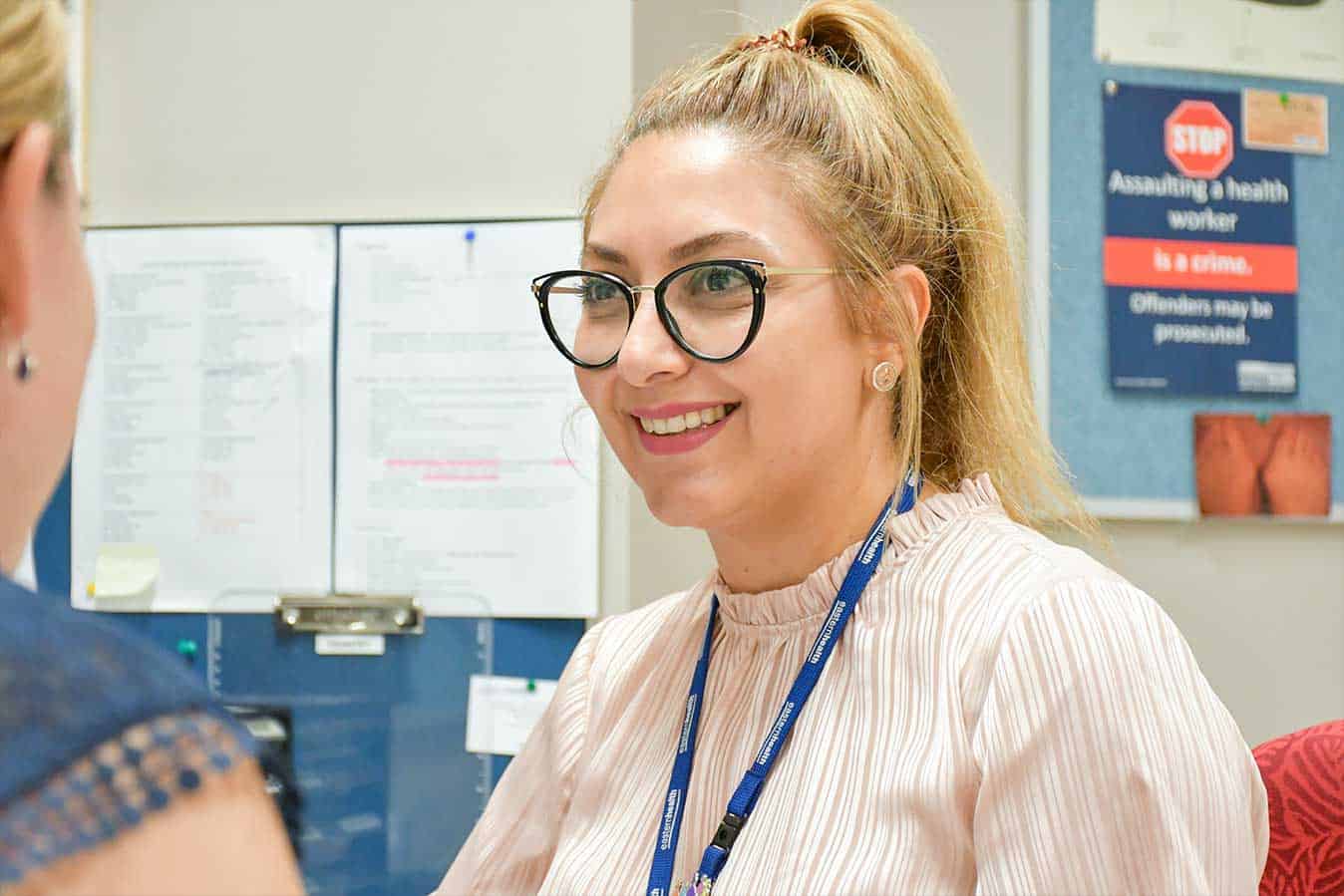Sexual Health Clinician Monica Owlad is a registered midwife working in the field of sexual health. Based within Healesville Hospital and Yarra Valley Health’s community health services, Monica provides direct care to women, including people who identify as transgender men.
Her scope of practice includes providing routine cervical screening tests, education on contraception, sexual health education, breast health education, and education on pelvic floor training and sexually transmissible infection screenings. As part of her role, she receives support from GP clinic doctors when referring symptomatic patients for review and diagnosis.
Monica chats to the ANMJ about how she landed in the field of sexual health and why she loves the job.
What inspired you to pursue midwifery, and then specialise in sexual health?
I completed my first degree, the Bachelor of Midwifery, in the Middle East. From the early days, I knew there was more to it than just helping women deliver babies.
Human fertility has always fascinated me, hence, I studied two graduate diplomas in sexual and reproductive science and sexual health in Melbourne.
Empowering women has always been one of my main motivations throughout my career. I believe supporting the community to understand and access their reproductive rights is a basic human right.
What does a Sexual Health/Women’s Health Clinician do and what education do you have to undertake to become one?
A women’s health clinician provides care and education to women in the community across a wide range of areas. This includes routine cervical screening tests, pregnancy testing and options counselling, breast health information, family planning and contraception information, menopause information, STI screening, and sexual health education geared at young adults.
I am a registered midwife, have a Master’s Degree in Public Health, and a postgraduate degree in Sexual and Reproductive Health. I am an accredited cervical screening provider with Cancer Council Victoria, and also have a Certificate for Blood Borne Viruses (HIV) to support work with people living with viral hepatitis and/or HIV.
Take us through a typical day on the job
Since COVID-19, I have been offering both face-to-face and telehealth consultations to my patients.
Women present as self-referred, or are referred by their GP for cervical screening tests, contraception advice and breast health checks.
Women who prefer to be examined by a woman attend our Women’s Health Clinic when they display vaginal symptoms, which can include any abnormal discharge, pain during sex, or post-menopausal symptoms. Clients with vaginal infections are managed in partnership with our GP clinic and doctors.
What traits do you need to be a good Sexual Health Clinician?
Compassion is important when working with the community. For women’s health in particular, I believe openness and a positive outlook can go a long way in supporting clients.
Women who present to the clinic sometimes have underlying emotional and psychological issues. We respect gender diversity for individuals, remain non-judgmental, and provide care to all.
What is the most rewarding part of your job?
When I see a mother bring her young daughter in for contraception advice, or STI screenings, I know that I have done my part in educating this mother about how we, as women, should look after ourselves, and our families.
What are some misconceptions about sexual health/women’s health?
People think the women’s health clinic is only for women but we welcome transgender men and transgender women, who receive hormonal therapies.
Further, when I consult with women, we discuss sexuality and other issues that emerge, which may include men’s health as well.
What advice do you have for students or new graduates considering a career in this field?
Experience and education go hand in hand. Gaining experience in hospitals before pursuing a specialty is critical. This is the only way, in my view, that you get exposed to other fields, which may shape your career.
Attend women’s health and sexual health conferences, webinars and university discussions. This will improve your understanding of what to expect when working in the field.
What’s in store for the future?
I am currently working on a few research studies with Monash University at the Melbourne Sexual Health Centre.
I am considering studying my PhD in the area of women’s and reproductive health in the future, and currently undertaking a counselling diploma to help support my clients on a daily basis.
This will improve the quality of the consultations I have with my clients, as well as the referral process as required.








